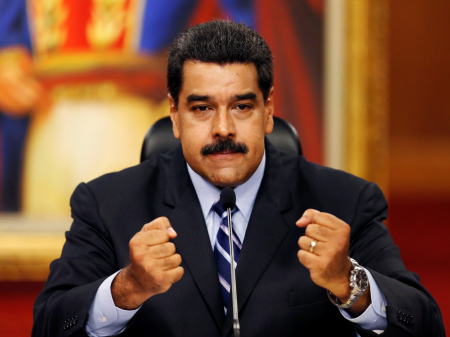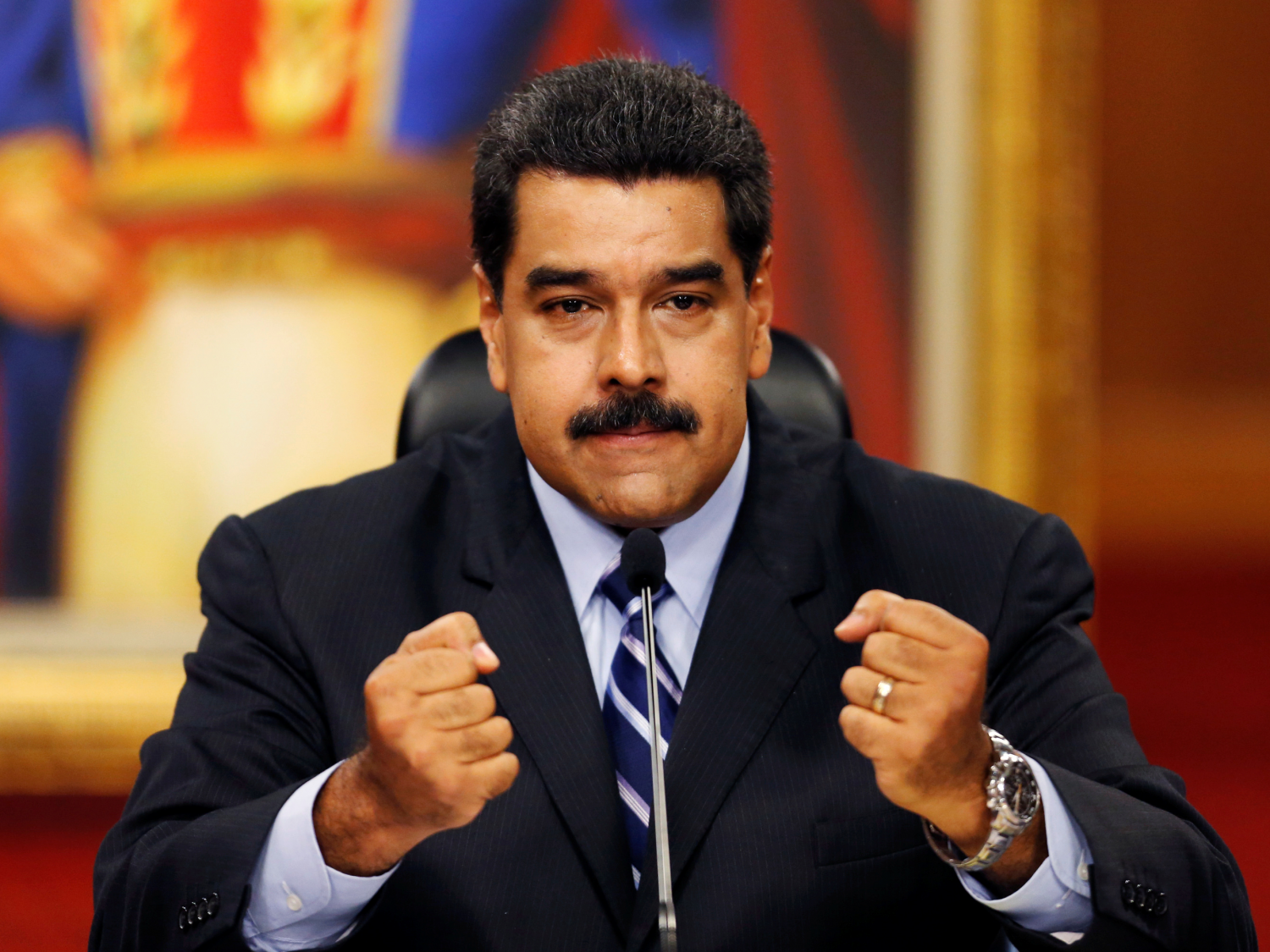CARACAS, (Reuters) – Venezuela’s cash-strapped government invited creditors to a Nov. 13 meeting in Caracas yesterday, after announcing plans to potentially restructure some $60 billion in bonds that sent the OPEC nation’s debt prices plunging.
President Nicolas Maduro on Thursday vowed to make a $1.2 billion bond payment but said future payments would be refinanced. Investors were unsure about what he meant, because U.S. sanctions has taken refinancing off the table.

Many saw the announcement as paving the way for default – despite Venezuela’s promises to the contrary – because the debt burden has left the country desperately short of basic goods such as food and medicines.
A default could create a sovereign debt crisis of a scale not seen in Latin America since the massive 2001 default in Argentina that shut it out of markets for years.
Investors say a newly created debt negotiation commission has little chance of making progress, in part because it is headed by Vice President Tareck El Aissami – who is blacklisted by the United States for alleged drug dealing.
“This commission will lay the groundwork for true and transparent dialogue between the government and bondholders,” El Aissami, who has no known experience in debt negotiations, said in a televised address.
Investors were bewildered that Maduro, who narrowly won election in 2013 after the death of Hugo Chavez, appeared to be opening the door to default immediately after authorizing more than $2 billion to bond payments.
Market wisdom had been that Venezuela would not make such payments if it expected to end up in default. It will need those funds because it will be locked out of financial markets.
“Nobody has ever paid a bond in full only to announce default the next day,” said an executive from one local brokerage, who asked not to be identified.
In addition to outstanding bonds, Venezuela owes some $26 billion to bilateral and multilateral creditors and $24 billion in commercial loans, according to New York-based Torino Capital.
It put the total public sector debt at $152 billion, though Maduro’s announcement appeared to be focused primarily on bonds.
The government and PDVSA owe some $1.6 billion in bond service and delayed bond interest payments by the end of the year, plus another $9 billion in bond servicing throughout 2018.
U.S. President Donald Trump, accusing Maduro of dictatorship, barred U.S. banks from participating in or negotiating new Venezuelan debt deals. That rules out swap operations, which allow investors to voluntarily exchange near-term debt for new securities that mature later.
Restructuring – which generally follows a default – refers to an involuntary arrangement under which creditors agree to change payment conditions. But they usually do so only in exchange for major economic reforms, which Maduro has balked at.
“A restructuring has a very close to zero possibility given U.S. sanctions, time constraints given the payment schedule, and the fact that Venezuela obviously does not have the technical capacity to negotiate,” said Jim Barrineau, co-head of emerging market debt at Schroders.
The International Monetary Fund issued a warning to Venezuela yesterday for failing to provide it with economic data on time and gave it six months to address the problem. The IMF could issue a “declaration of censure” for non-compliance, two sources told Reuters.
Although the IMF’s warning is unrelated to Maduro’s announcement, it added to investor worries about the economy.
Venezuelan bond prices took a beating yesterday.
Near-term maturities were hardest hit. The PDVSA 2021 bond dropped 20 percentage points to a bid price of 27 points. Longer-dated bonds fared better, with PDVSA’s 2027 bond slipping 4.83 points to bid 25.13. Venezuela’s 2018 bond was down 31 points.
Investors holding longer-dated paper generally expect a default will take place well before maturity, while the profitability of short-term bets is more dependent on the bonds being paid off.
Bank of America yesterday estimated that bond prices would drop to around 20 cents on the dollar if a default took place.
There was no immediate impact on oil exports and production from Maduro’s announcement.
EMTA, a trade association that sets practices for emerging markets, recommended that Venezuelan bonds not under U.S. sanctions continue trading with accrued interest – a sign Venezuela is for now expected to keep up with its payments.
The Washington-based International Institute of Finance (IIF) held an investor call for bondholders in the event talks with the government go ahead, according to two market sources who participated in the call.
Most were not planning to go to Caracas, the sources said.
IIF declined to comment.
‘NOBODY TRUSTS HIS GOVERNMENT’
Leaders of the opposition-led National Assembly said on Friday that any restructuring would be invalid without congressional approval.
“Maduro won’t be able to restructure the debt because nobody in the world trusts his government,” National Assembly head Julio Borges said.
Though there is widespread public disquiet at economic hardship, the opposition coalition is cracking after a disastrous showing at last month’s gubernatorial elections, and there is speculation Maduro may bring forward the presidential vote, which had been expected for the end of 2018.
Vice President El Aissami said a $1.2 billion payment on PDVSA’s 2017N bond that matured on Thursday had already been transferred. The Central Bank’s website showed a drop of $430 million in international reserves, signaling the government may have dipped into reserves to pay the PDVSA bond.
That pushed reserves to $9.7 billion, their lowest level in at least 20 years.
The company spent days trying to make payment on its 2020 bond, which finance industry sources attributed to nervousness by bank officials over possible U.S. sanctions violations.
Principal payments on the two bonds were moving through the clearing system without a problem, a source familiar with the matter said yesterday.
The next hard payment deadline for PDVSA is an $81 million bond payment that was due on Oct. 12 but on which the company delayed payment under a 30-day grace period. Failing to pay that on time would trigger a PDVSA default, investors say.
That would expose Venezuela and PDVSA to lawsuits by creditors seeking to seize assets such as refineries in the United States.

